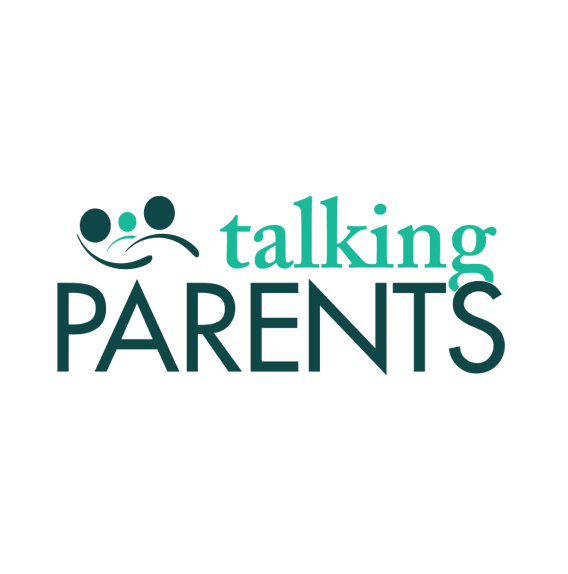How TalkingParents Helps Co-Parents Prevent ACEs and Create PCEs
This Trusted Parenting Network Article brought to you by

TalkingParents
Make Co-Parenting Easier with Better Communication
About TalkingParents
TalkingParents is an all-in-one co-parenting communication service that keeps interactions organized and documented. Parents who are divorced, separated, or were never legally married use this comprehensive solution to communicate regarding their kids.
Whether co-parents are dealing with low or high levels of conflict, TalkingParents allows them to manage messages, calls, schedules, expenses, and all other child-related information efficiently. By streamlining and recording interactions, TalkingParents aims to simplify the co-parenting journey through better communication, enabling parents to prioritize their children’s well-being.
What are ACEs and PCEs?
Adverse childhood experiences (ACEs) are potentially traumatic events that happen in the first 17 years of a child’s life. Some examples of ACEs include:
- Experiencing violence, abuse, or neglect.
- Witnessing violence in the home or community.
- Having a family member attempt or die by suicide.
- Growing up in a household where substance abuse or mental health problems are present.
- Instability due to parental separation or household members being in jail or prison.
According to the CDC, toxic stress from ACEs can negatively impact a child’s brain development, immune system, and stress response system, which can affect their attention, decision-making, and learning. Kids who experience toxic stress may also have trouble forming healthy and stable relationships.
On the other hand, positive childhood experiences (PCEs) stem from safe, stable, nurturing relationships and environments. Some examples of PCEs include:
- The ability to talk with family about feelings.
- The sense that family is supportive during difficult times.
- The enjoyment of participation in community traditions.
- Feeling a sense of belonging in high school.
- Feeling supported by friends.
- Having at least two non-parent adults who genuinely cared.
- Feeling safe and protected by an adult in the home.
PCEs have the power to prevent or protect children from traumatic events, toxic stress, or ACEs.
How do ACEs and PCEs come into play for co-parents?

Parental separation is one of the most common adverse childhood experiences, but not for the reasons you might expect. Research suggests that it is not necessarily the separation or divorce itself that causes ACEs, but rather, the presence of conflict, isolation, and lack of physical and psychological safety. It is for this reason that minimizing conflict in your co-parenting relationship is key to preventing your child from experiencing ACEs.
Additionally, creating a safe, stable environment for children is imperative to promoting PCEs, which is why consistency in co-parenting is so important. Structure teaches children what to expect and how to behave, and a lack of consistency can potentially lead to emotional and behavioral issues. Predictability in a child’s life following parental divorce or separation is especially crucial, as patterns and environments are likely disrupted.
How TalkingParents can reduce ACEs and promote PCEs
Many co-parents primarily utilize TalkingParents to minimize conflict and foster consistency for their kids. The service can help co-parents shield their children from ACEs and create PCEs by:

1. Promoting healthy communication between parents
While conflict isn’t likely to entirely disappear from your co-parenting relationship, TalkingParents can help you foster healthier, more stable communication. Because the service keeps all interactions documented, parents are more likely to stay civil and child-focused in their conversations. Additionally, all interactions with your co-parent can be limited to TalkingParents, which can help you both set boundaries, and in turn, improve communications. You can even work with an attorney to set specific rules and guidelines on when and how the application can be used, further stabilizing and streaming your interactions. Healthier communication between co-parents can help create a safe, stable, and nurturing environment for your child, protecting them from ACEs and leading to PCEs instead.

2. Easing stress and creating consistency between homes
Anyone who co-parents knows that juggling kids between two homes can be extremely chaotic, especially for the children. TalkingParents can help ease the process of sharing custody by allowing you and your co-parent to document and coordinate your child’s schedule on a Shared Calendar. This feature keeps co-parents more organized and accountable, allowing them to fully focus on their child during custody transitions, school activities, special events, and more, all while creating consistency for the kids. TalkingParents also provides tools for co-parents to manage and share expenses and their child’s information between family units. Each of these features can help prevent inconsistencies and ease stress for all involved. This reduces instability for your kids, preventing ACEs, and makes them feel safe and supported, creating PCEs.

3. Keeping the kids out of conflict
Again, it’s the presence of conflict that often leads to ACEs after divorce or separation, which is why it’s crucial to protect your kids from unhealthy shared parenting situations. To keep the kids out of conflict, co-parents should never:
- Badmouth the other parent in front of the kids.
- Make the child the messenger between parents.
- Argue in front of the children.
TalkingParents can assist you with each of these points by allowing you to keep all co-parenting interactions separate from everyday life, including settings where your child may be present. A co-parenting communication service can serve as a dedicated space to handle all shared parenting related discussions, coordination, and decisions, allowing you to shield your child from anything potentially negative.


